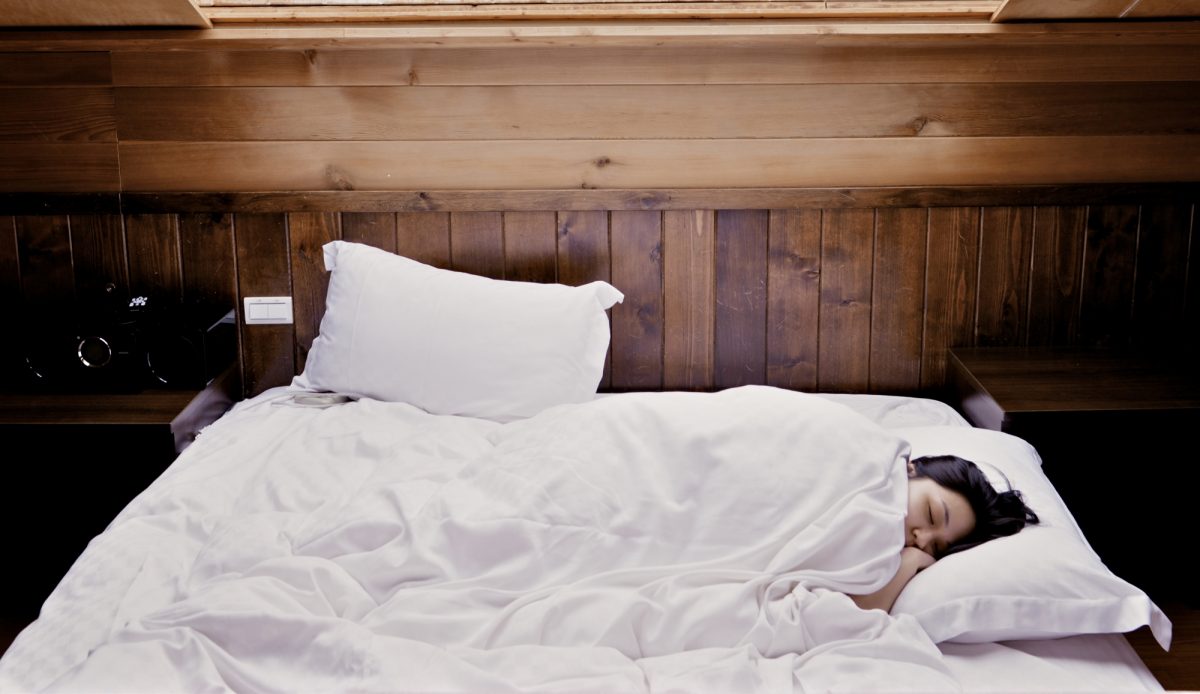
The COVID-19 pandemic has led to increased stress for many, which can also lead to insomnia or trouble sleeping.
How to manage sleep stress during pandemic
About 30 per cent of adults in North America have some level of insomnia or trouble sleeping related to life stress, which is being heightened for many as the COVID-19 pandemic continues to impact our day-to-day lives, a psychiatrist with the Rady Faculty of Health Sciences said.
“The uniqueness of the situation now is that we’re all experiencing increased life stress at the same time,” said Dr. Tanya Sala, assistant professor of psychiatry at the Max Rady College of Medicine. “Before the pandemic started, people would have a variety of life stressors coming and going – relationship difficulties, work stress – but they would be oscillating on different patterns. But right now we’re all in the same group. There’s increased worry for all of us.”
Sala, a UM grad [MD/01] and medical director of the Mood and Anxiety Disorders Program at Health Sciences Centre, said the pandemic has disrupted the sleep of people who’ve found themselves working at home, front-line workers, those who’ve lost work, and students who are wondering what happens next.
“The University of Manitoba has done a very good job of getting a lot of classes and exams online, but they’ve [students] lost the external supports for structure during the day – the scheduled assignments, the classes, the environmental structure that kept their rhythm regular,” Sala said.
She noted that financial stress is also a worry for many, including students.

Dr. Tanya Sala, assistant professor of psychiatry at the Max Rady College of Medicine.
“Daytime distractions can be a very useful method to cope, but when people lie down in the dark and are waiting to sleep, if they’re under more stress and have excessive worry, that’s when stress tends to come into the mind, because there are no distractions,” she said.
Sala offered several tips for students and others dealing with or wanting to prevent insomnia.
Stick to a steady sleep/wake cycle
People tend to have poorer energy, concentration and mood if they don’t have a regular sleep/wake cycle. I’ve been suggesting to my patients to try to maintain a regular cycle, where they get up at the same time every day, within a half hour, and try to keep their day as busy and productive as they can within the current public health guidelines.
Avoid excessive caffeine use
Products containing caffeine should be discontinued at least four hours before bedtime. Caffeine is a stimulant and can keep you awake.
Keep bedroom for sleeping
Try to avoid watching television, listening to the radio or eating in your bedroom.
Avoid alcohol or cannabis as a way to encourage sleep
The use of alcohol and other substances, like cannabis, might be tempting. If people are having trouble falling asleep, then it’s common in our society that they might have a drink or two to help them. But we know from studying sleep that alcohol disrupts the sleep architecture, so even though people might be asleep for more hours, the sleep quality is much reduced. They will feel less refreshed the next day.
Get regular exercise
Try to get physical exercise every day, because exercise improves sleep quality. If people get physical exercise during the day (with appropriate social distancing) they tend to have a better quality of sleep and feel more refreshed the following day. But I suggest that people don’t exercise within two hours of bedtime because exercise can be invigorating and it might actually make it harder for the person to fall asleep.






